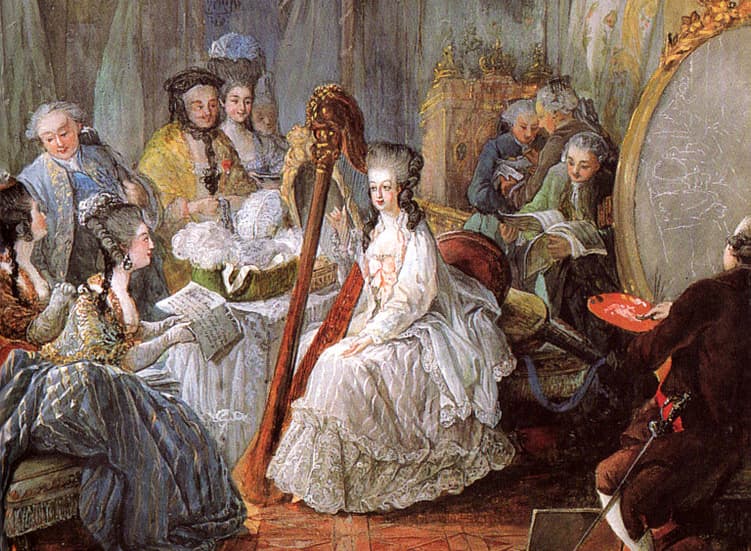Elites’ Contempt for Ordinary Americans Exposed in Surveys
The polls of the top 1 percent of society find members of America’s overclass would deprive their fellow citizens of things they have taken for granted.

What does America’s overclass think of the rest of us? The short answer is “not much.” They think ordinary people’s splurging on natural resources is destroying the planet and needs to be cut back forcefully.
And that the government needs to stamp down on ordinary people enjoying luxuries that, in their view, should be reserved for the top elites.
These are the implications of the results of two surveys of elite people conducted by pollster Scott Rasmussen by the Committee to Unleash Prosperity, an organization that supports low tax rates and low government spending.
The surveys covered not large swaths of the population but were confined to the top 1 percent of society.
One survey, the Elite, included only respondents with postgraduate degrees, household incomes above $150,000 and residents in a ZIP code with more than 10,000 people per square mile.
Another, Ivy League graduates, included adults who attended Ivy League or other selective private colleges such as Chicago, Duke, Northwestern, or Stanford.
You probably won’t be surprised that the large majority of this Elite feels economically well off. Nor, if you’ve kept up with recent changes in party identification, will you be much surprised that 73 percent of these elites identify as Democrats and only 14 percent as Republicans.
What is surprising is the extent to which this American overclass would deprive its fellow citizens of things they have taken for granted. Half of these groups, 47 percent of Elites and 55 percent of Ivies, say the United States provides people with “too much individual freedom.”
More than three-quarters favor, “to fight climate change, the strict rationing of energy, gas, and meat,” a proposition rejected by 63 percent of the public.
Again, “to fight climate change,” between half and two-thirds favor bans on gas stoves (a recent target despite demurrals of Biden bureaucrats and New York state Democrats), gasoline-powered cars (heavily disfavored by Biden Democrats and California rules) and SUVs, “private” air conditioning and “nonessential air travel.”
The ascetic economist Thorstein Veblen, in his 1899 book “The Theory of the Leisure Class,” argued that the rich engaged in “conspicuous consumption” activities such as golf, polo and art collecting, for which ordinary people had neither the time nor the money.
A century and a quarter later, America has rich people hoping to deprive ordinary people of “conspicuous consumption” activities they can afford and where they clutter up the airports, interstate highways and high-end malls.
For generations, Democrats have liked to portray themselves as the tribune of the little man, the defender of policies that enable ordinary people without special advantages, or with many disadvantages, to live comfortably, securely and in dignity. There may be some condescension in this posture, but also a considerable element of respect.
This survey shows that today, this 1 percent of the public, which includes virtually all elective and appointive Democrats in Washington and states like California, New York and New Jersey, tends to see the bulk of its fellow citizens as selfish and destructive, in need not just of discipline but deserving of harsh restrictions on their freedoms.
This attitude is echoed by the wider group of Democratic voters. A 2023 Pew Research survey shows that while 31 percent of Republicans, even with their party out of power, think America “stands above all other countries in the world,” only 9 percent of Democrats do so.
It’s an unstable and dangerous situation when a largely one-party elite looks, with fear and loathing, across what Rasmussen describes as a “Grand Canyon gap” between it and its multiparty fellow citizens.
It’s reminiscent somehow of the “let them eat cake” French royalists in 1789 or Russian nobles in 1917. An overclass this disconnected and contemptuous risks disruption.
A better approach comes from an undoubted member of America’s elite, JPMorgan Chase’s chief executive, Jamie Dimon. Speaking to CNBC at Davos last month, Mr. Dimon recounted a bus trip to Spokane and Boise and Bozeman: “People are growing. They’re hungry to grow. They’re innovating. It’s everywhere. It’s not just Silicon Valley.”
Perhaps aware the Mountain West votes Republican, Mr. Dimon, who calls himself a centrist Democrat, conceded that President Trump “wasn’t wrong about some of the critical issues” and was “kind of right” about NATO and immigration and “grew the economy quite well.”
Of elite Democrats’ contempt for Trump supporters, he had less to say. “The Democrats have done a good job with the deplorables, hugging their Bibles and their beer and their guns. I mean, really? Can we stop that stuff and actually grow up and treat other people respectfully and listen to them a little bit?”
It’s a question other members of our dysfunctional overclass might ask themselves.
Creators.com

